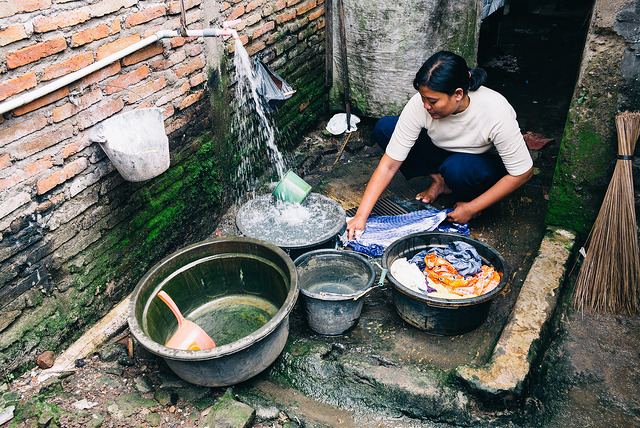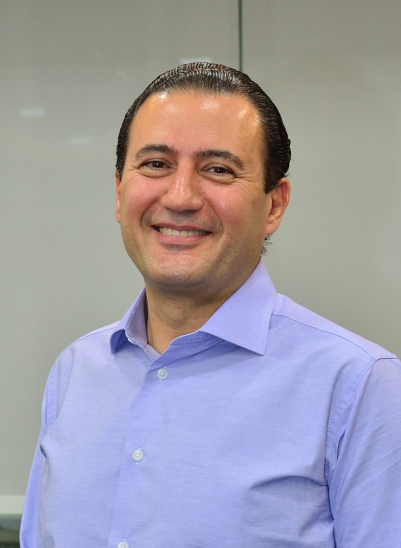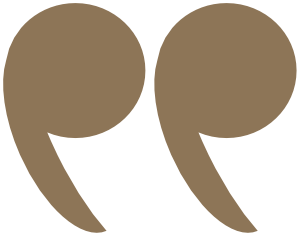|
Moya Holdings Asia, a water treatment player in Indonesia, collects raw water from sources (e.g. river or reservoir) provided by the local government authority, pumps it into its treatment plants, and delivers clean water through a network of pipelines to homes and businesses. |
Only 22% of the Indonesia population had access to piped water in 2015, according to the WHO/UNICEF Joint Monitoring Program for Water Supply and Sanitation.
|
Access to piped water supply in Indonesia is very low relative to what it should be. The Indonesian government is pushing for piped water to be universally accessible across Indonesia. - Simon Melhem Moya Holdings Asia (Photo by Sim Kih) |
"The water sector in Indonesia is still at a very early stage of development," said Moya Holdings Asia Executive Director Simon Melhem.
He was speaking at the Group's 3QFY2017 results briefing on Thursday (23 November).
"The water pipe may be there, but that doesn't mean water is delivered at the right quality and the right pressure 24 hours a day.
"Even within the existing network of water pipelines, there is much room for improvement work," he said.
Leading Indonesia water player
Moya's earnings increased significantly after completing the acquisition of Acuatico Pte Ltd and its subsidiaries on 8 June 2017.
The Acuatico Group's net profit after tax was US$17.86 million (S$24.02 million) in FY2016, about 8 times that of Moya.
The acquisition added production capacity of 11,485 litres of water per second (lps) to Moya's 2,500 lps.
Even without Acuatico, Moya had already secured work to install 722 km of water pipes network by the end of 2018 for its Tangerang BOT project. As of October 2017, about 370 km have already been installed.
With the acquisition, Moya has become Indonesia's largest procurer of pipes. It expects to benefit from economies of scale as a result of its enlarged operations.
|
Financial Highlights |
9MFY2017 |
yoy change |
|
Revenue |
74.3 |
528% |
|
Gross profit |
26.1 |
n.m. |
|
EBITDA margin |
40% |
n.m. |
|
Net profit attributable to shareholders |
8.0 |
302% |
|
Cash and cash equivalents |
102.8 |
63%* |
Data: Company
* YTD change
For more info, refer to its 3QFY2017 financial statements here.
Below is an excerpt of questions raised at the meeting, and the replies provided by Mr Melhem and CFO Darmasen Anwar.
 Q&A Q&A |
||||||||||||||||
|
Q: What is your cost of debt? Do you plan to restructure it?
Q: Do you have plans to raise fresh equity? |
||||||||||||||||








